PARLIAMENT
Electoral reform arrested — with political kick for touch after 2024 polls
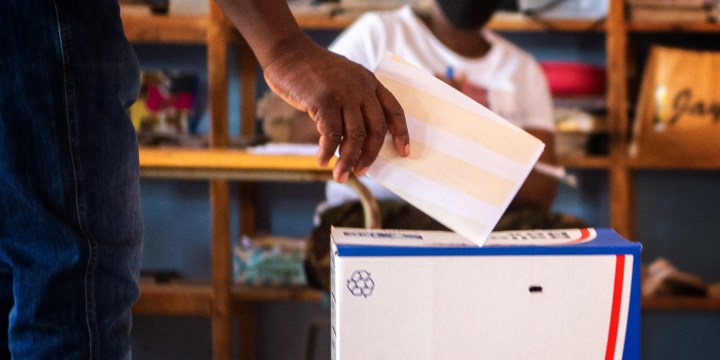
The door on broad electoral reform is now closed, but not locked, as the controversial Electoral Amendment Bill itself reopens the possibility of voting system changes — after the 2024 elections. And civil society court action looms.
The National Council of Provinces (NCOP) on Tuesday passed the Electoral Amendment Bill that makes narrow technicist changes so independents can contest national and provincial polls, with a crucial tweak — an electoral reform consultation panel — that may yet allow for possible broader reform after 2024.
Effectively, that panel would be another electoral system review. Previous ones recommended introducing constituencies, or directly voted-for public representatives, but were ignored by the government. This included the 2003 Frederik van Zyl Slabbert Electoral Task Team, but also most recently, Home Affairs Minister Aaron Motsoaledi’s June 2021 advisory committee in its Option 2 majority report.
That nine-strong panel of fit, proper and suitably qualified South Africans in terms of clause 23 of the Electoral Amendment Bill, must be established by the home affairs minister within four months of the law coming into force. Within 12 months of the 2024 elections it will make “non-binding recommendations in respect of potential reforms of the electoral system … [for] the elections to be held after the 2024 elections”.
It is understood to have been a last-minute political reality check, given the widespread call for greater electoral reform, and several surveys commissioned by the Electoral Commission of South Africa (IEC) reflecting plummeting public trust not only in politicians and political parties, but also in public institutions such as Parliament and municipal councils.
At least some of this change at the NCOP lawmaking stage seems related to Struggle veteran, ex-minister and chairperson of the ministerial advisory committee, Valli Moosa, who on 15 October delivered a hard-hitting Ahmed Kathrada Lecture.
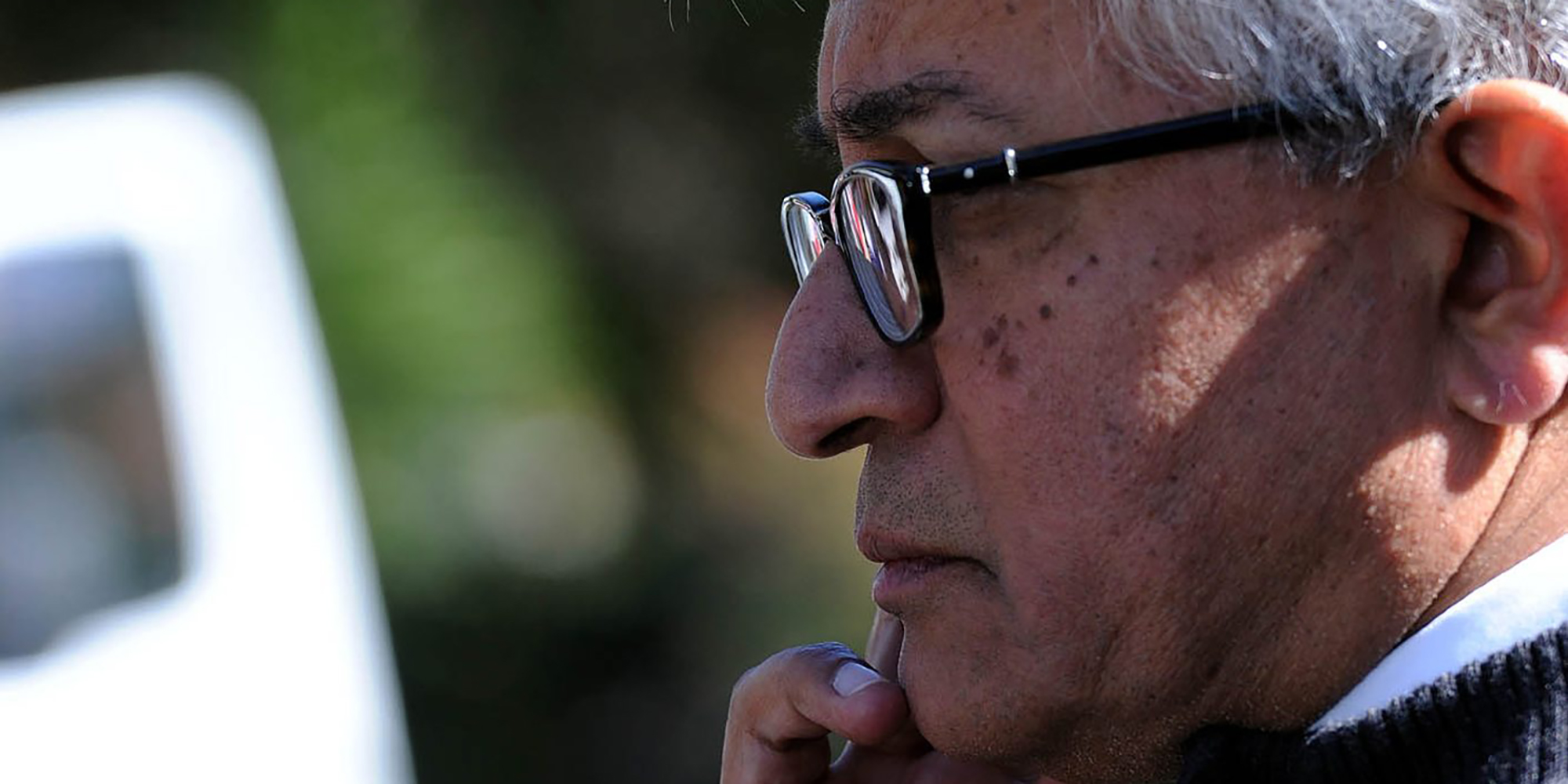
Valli Moosa. (Photo: Werner Beukes / Sapa)
“The matter of electoral reform is being dealt with [in Parliament] as an administrative issue in a narrow self-interested manner. Unfortunately, it is not being dealt with as a serious human rights-based constitutional question that has to give expression to an aspiration that runs through the very fabric of our nation,” said Moosa.
“The bill before Parliament is seriously defective. It is shamefully cynical of the Constitutional Court order, and it insults the electorate. It does not pay heed to the good counsel of President Mandela. The bill is not in keeping with the spirit and letter of the Constitution. It is inconsistent with the Freedom Charter.”
It emerged in the Q&A slot how, when Moosa called various MPs, few knew of the impact of the Electoral Amendment Bill amid what seemed to have been, at best, limited discussions.
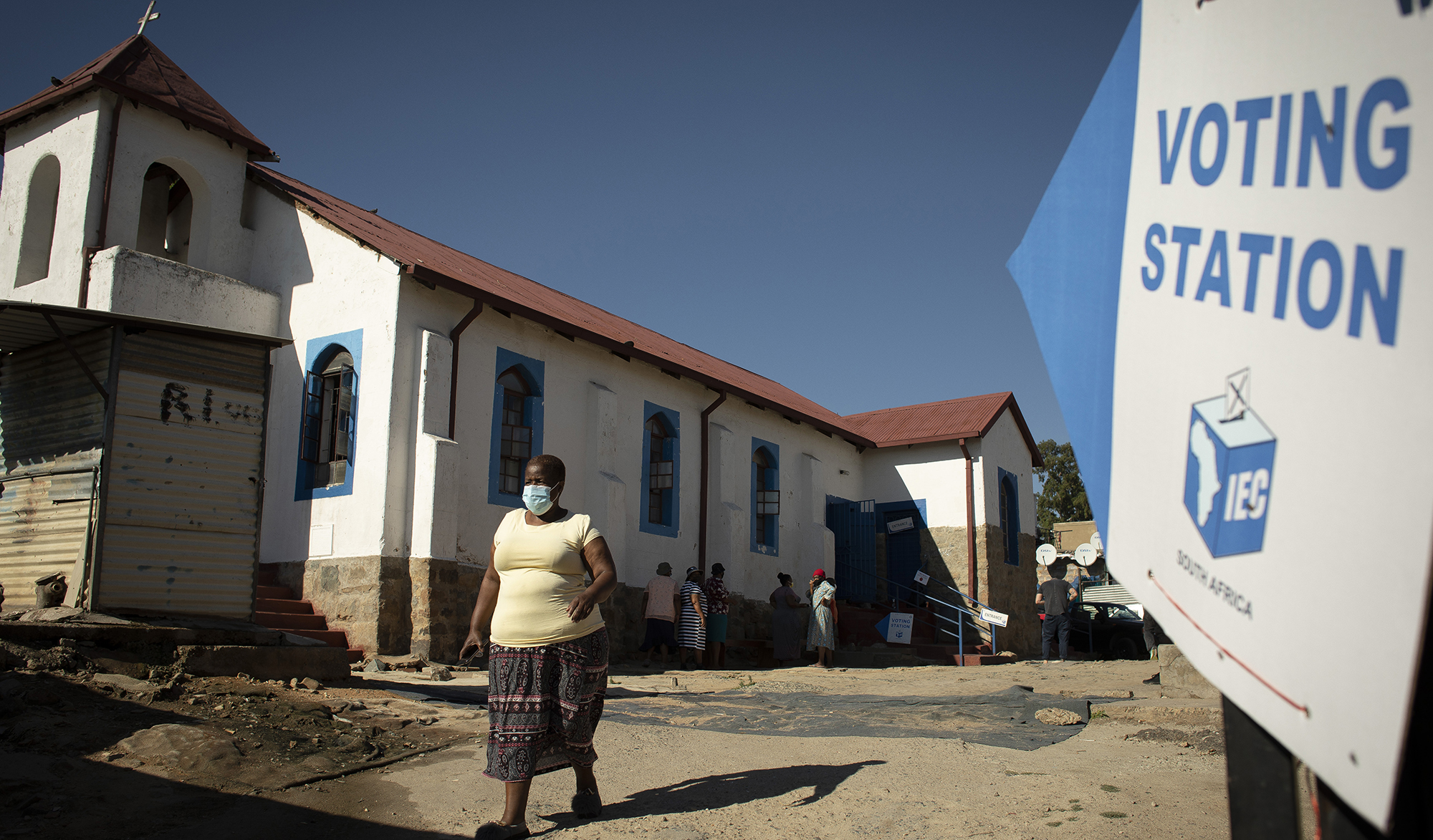
A woman leaves a voting station after casting her vote during the local government elections in Alexandra, Johannesburg, South Africa, on 1 November 2021. (Photo: EPA-EFE / Kim Ludbrook)
That was before the NCOP included the clause 23 electoral reform consultation panel, and reset seat calculation formulas and signature support requirements. Because of that, the bill returns to the National Assembly to agree to that change, with the home affairs committee scheduled to discuss this on Wednesday morning.
Deadline likely to be met
Opposition is unlikely. And Parliament is set to meet its 10 December Constitutional Court deadline — it’s had to be extended by six months from June — to ensure independents can contest national and provincial elections. President Cyril Ramaphosa has no deadlines by which to sign the bill on to the statute books. Returning the draft law to Parliament may not be an option, given the NCOP’s inclusion of the electoral reform consultative panel.
According to the Council for the Advancement of the South African Constitution’s executive secretary, Lawson Naidoo, this draft law is what it is, given the circumstances.
“The minister has grossly mishandled the process. They’ve created a situation where this [bill] is the only possibility. The bill is fundamentally flawed and it does not address [the issues]. But in order to hold elections in 2024 it is the only workable option.”
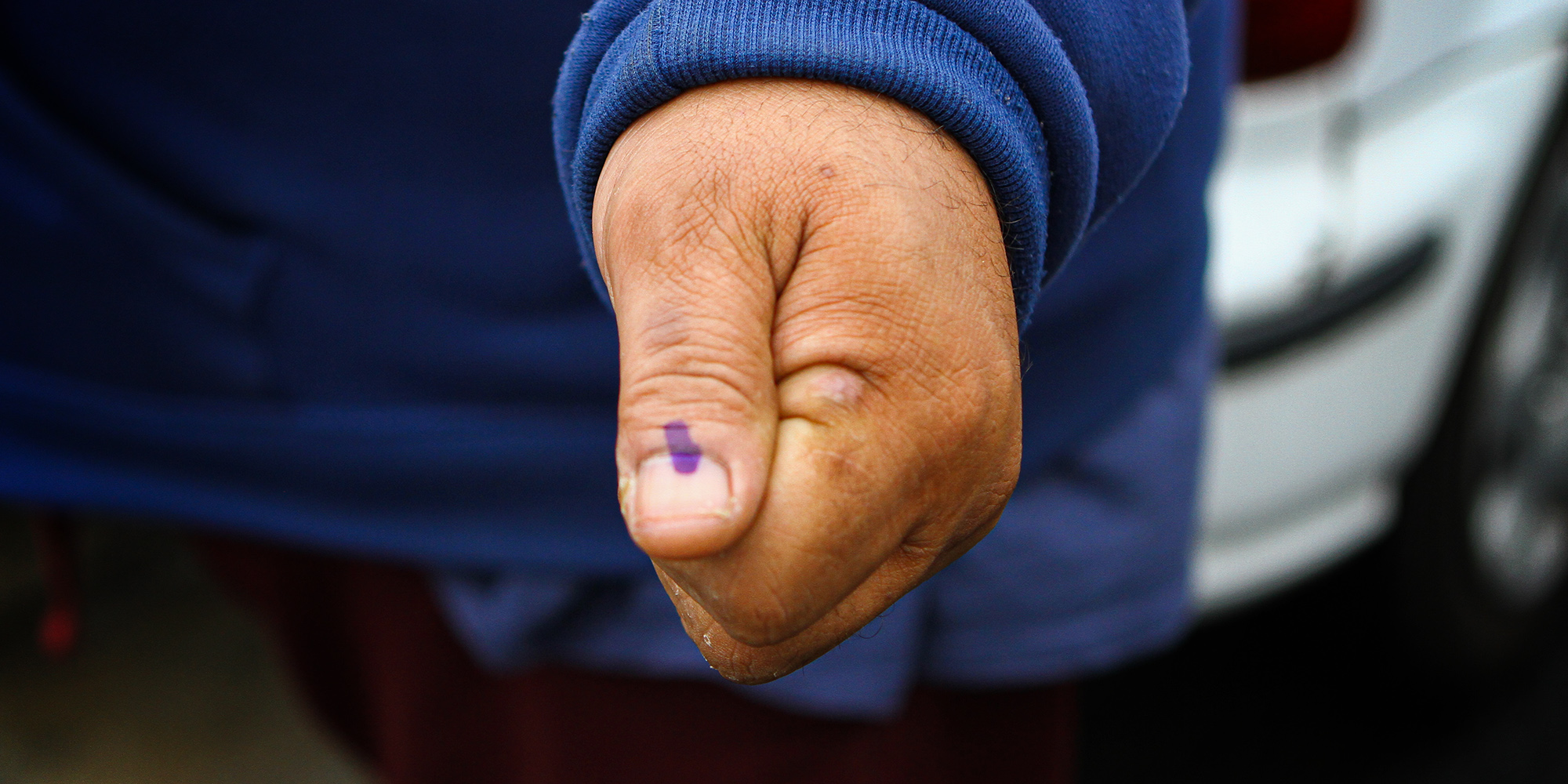
A voter’s thumb is marked with ink during the 2021 South African municipal elections in Cape Town. (Photo: Gallo Images / Ziyaad Douglas)
Crucially, Naidoo told Daily Maverick, the focus needed to be on getting the best possible nine members for the electoral reform consultation panel — the criteria are for fit, proper and suitably qualified South Africans — and ensuring a wide-ranging, independent integrity process.
During Tuesday’s NCOP debate it became clear the DA and Freedom Front Plus did not support the draft law, which got the nod from the ANC and EFF. It was adopted with a vote of 29 for and 13 against.
Malicious compliance
But the Electoral Amendment Bill legislative progress encapsulates the worst in law-making — malicious compliance to do the least to meet the June Constitutional Court judgment and political manipulation that saw public participation dominated by ANC speakers who identified themselves by branch and region before speaking off the same crib sheet.
This particular legislative process also illustrated how Parliament has kowtowed to Cabinet and ministers.
The Constitutional Court said Parliament “should have done more”, including introducing the draft law itself, when it approved the national legislature’s request for an extension to fix the electoral law as it was not in the interest of justice to do otherwise.
“The minister did not, in fact, take all reasonable measures to give effect to the order. Parliament awaited the minister’s introduction of the bill,” the Constitutional Court said. “When it was so long delayed, Parliament should have taken steps to introduce a bill, without reliance on the minister. This it failed to do.”
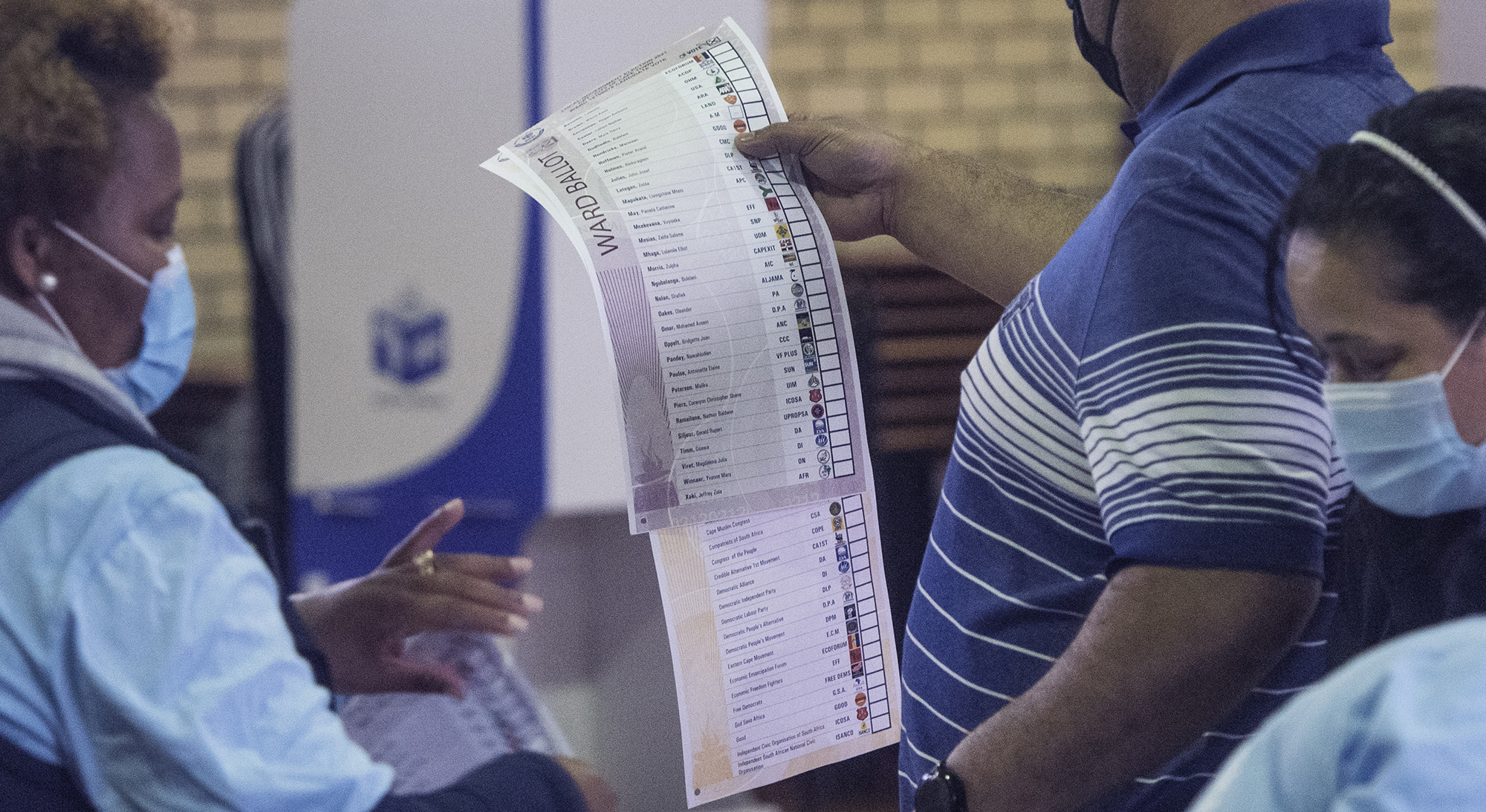
Voting at Portlands High School, Mitchells Plain, Cape Town in the 2021 South African municipal elections. (Photo: Gallo Images / Brenton Geach)
In early 2021, Cope leader Mosiuoa Lekota submitted a Private Member’s Bill on electoral reform that would include constituencies, and briefed the National Assembly home affairs committee.
By then, seven months had passed since the June 2020 Constitutional Court ruling that gave Parliament two years to fix the law so that independents could contest national and provincial elections. Already by August 2020, Motsoaledi had been told the law would have to be passed by October 2021 if constituencies were to be introduced, and a countrywide demarcation process would be needed, in addition to the IEC’s usual 18 to 24 months of preparation time for elections.
Instead, the legislative processes on this draft law were an exercise in kicking for touch.
The governing ANC MPs, and the parliamentary ANC caucus, stalled. Cabinet took until November to approve the bill for submission to Parliament, where it finally dropped in late December 2021, making narrow technicist changes in line with the “Option 1 minority report”, as the ministerial advisory committee dubbed it.
Visit Daily Maverick’s home page for more news, analysis and investigations
In the unfolding public hearings, ANC speakers used “minimalist” and “Option 1”, in what became an apparent countrywide stage-managed campaign.
On 20 October, the National Assembly approved the Electoral Amendment Bill with 232 votes for, 98 against and three abstentions, on the back of the ANC and EFF, which in its debate contribution described civil society as “stooges” for the push for greater electoral reform.
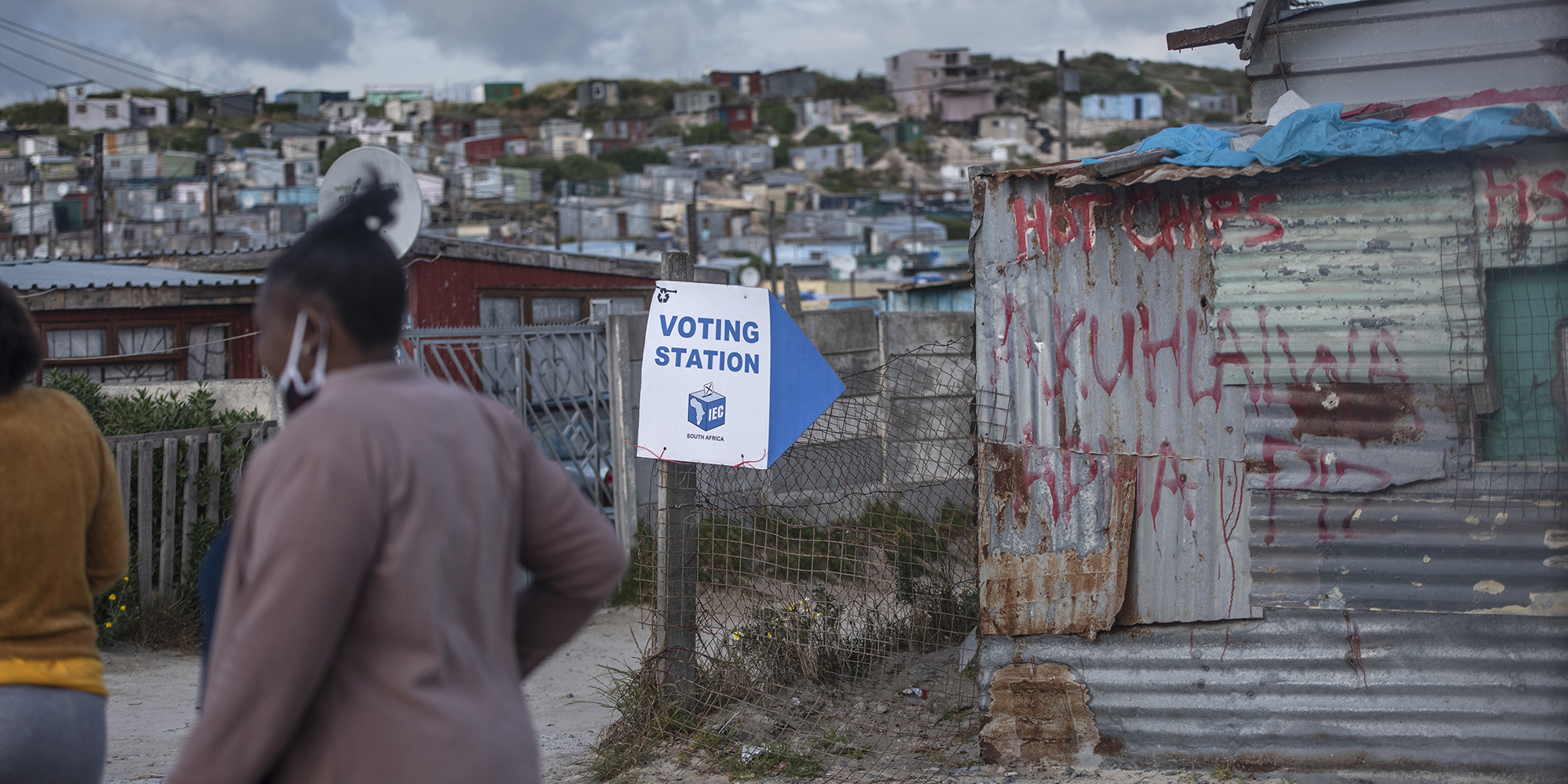
Voting in Nkanini, Khayelitsha in Cape Town during the 2021 South African municipal elections. (Photo: Gallo Images / Brenton Geach)
Now that the NCOP has dealt with the bill, the National Assembly must approve the changes, including the electoral reform consultative panel. Wednesday’s home affairs committee has been briefed and will deliberate.
On Tuesday, 6 December the Electoral Amendment Bill could well pass its last parliamentary hurdle — the programme’s plenary of that day has a spot for “legislation”, just before the farewell speeches ahead of the year-end recess.
Ultimately, the push for greater electoral reform cannot be massaged away — if meaningful electoral participation in South Africa’s constitutional democracy, and accountability, transparency and responsiveness are taken seriously. DM



















 Become an Insider
Become an Insider
Comments - Please login in order to comment.